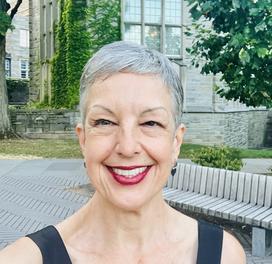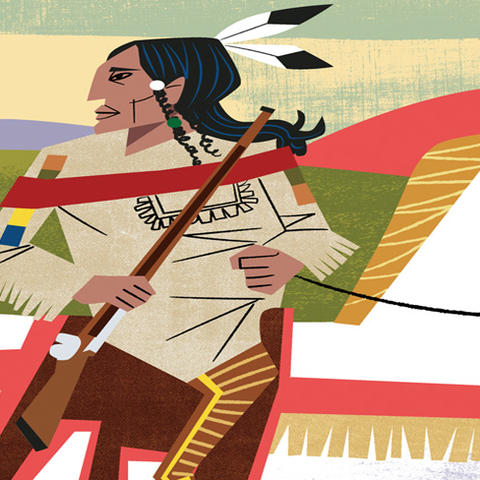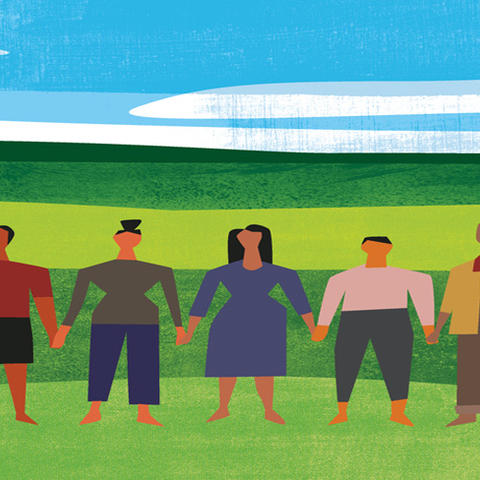J. Kēhaulani Kauanui Shines a Spotlight on Indigenous Experiences

Growing up in southern California, J. Kēhaulani Kauanui would spend each summer on the island of Kaua‘i in Hawaii. But she wasn’t luxuriating in hotels or vacation homes; Kauanui’s father hails from Anahola, a specially designated territory for native Hawaiians that was — and still is — regulated by blood quantum policy.
“The state requires Hawaiians to prove that they have 50% Hawaiian blood to even be on a waiting list for a lease,” Kauanui says of the land. “It is a quasi-reservation, and pretty impoverished, to boot. That fantasy of the Hawaiian Islands — I knew, as a young kid, this place was not the same.”
Kauanui carried this awareness into adulthood, dedicating her life to Indigenous studies and activism. She earned her bachelor’s degree in women’s studies at the University of California, Berkeley, and her Ph.D. in history of consciousness at the University of California, Santa Cruz. Her research focuses on a variety of Indigenous issues including sovereignty and self-determination, settler colonialism and decolonization, and gender and sexuality.
“My research really comes out of social movement politics and also cross-racial explorations around what we now would call solidarity.”
Quick Facts
Title
Professor of Indigenous studies and anthropology
Time at Princeton
5 months
Upcoming Class
Decolonizing Indigenous Genders and Sexualities
Kauanui’s Research: A Sampling













No responses yet